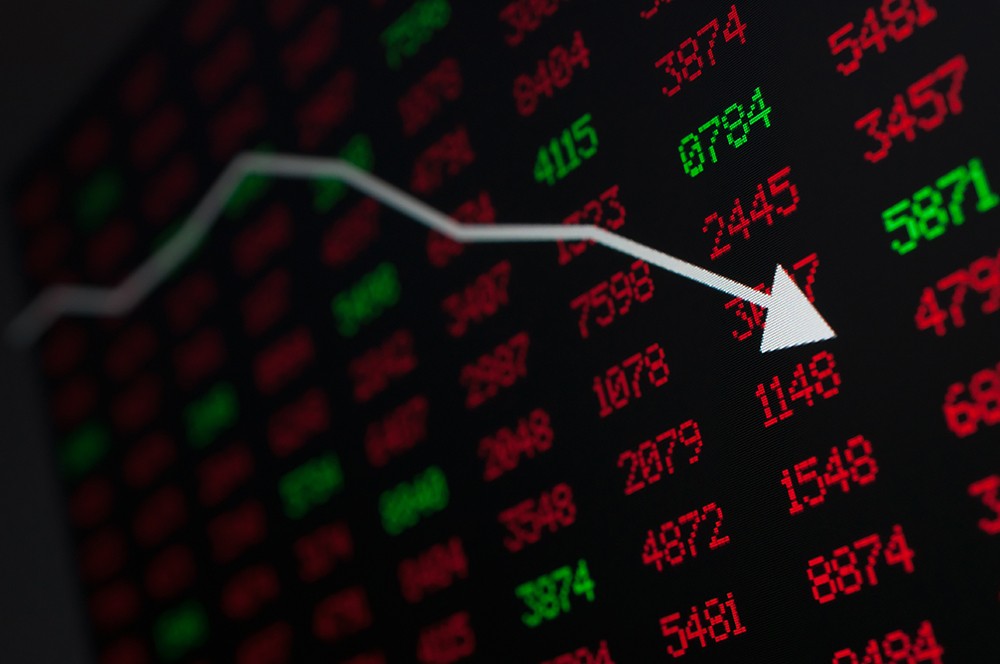The day we learned the American job market had lost 3.3 million jobs in a week, the Dow gained 1,300 points on news that the Senate had reached a deal on a $2 trillion coronavirus rescue package. Sure, the stock market isn't the economy. But the dissonance is jarring.
As large as it is, the bill Congress passed last week probably won't avoid a recession. The hole is that deep — and it's compounded by the fact that the U.S. is the only developed country where health care access is largely tied to employment, and millions of people are now unemployed amid a fast-spreading, increasingly deadly pandemic.
On Thursday, the U.S. eclipsed 1,000 coronavirus deaths. On Friday, just eight days after documenting coronavirus case 10,000, we became the first country to log number 100,000. On Saturday, we exceeded 2,000 deaths. The government's foremost infectious-disease expert, Dr. Anthony Fauci, said on Sunday that he expects between 100,000 and 200,000 deaths. (Trump, who a month ago promised to quickly eradicate the coronavirus, said that would mean he'd done a "very good job." Goalposts, moved.)
Keeping fatalities at even that level will require measures at odds with the president's other goal: restarting the economy as quickly as possible. Last week, he floated relaxing the Centers for Disease Control and Prevention's social-distancing guidelines to "reopen" the country by Easter Sunday, April 12.
Three days after that, according to a new model from the University of Washington's Institute of Health Metrics and Evaluation, the coronavirus crisis will peak nationwide, with nearly 2,300 deaths projected on April 15 alone. (This model predicts 82,141 deaths through July 15, assuming that the country maintains strict social-distancing practices until the summer.) Perhaps with that peak in mind, Trump reconsidered. He announced on Sunday that he'd keep the current guidelines in place through April 30.
The president's desire to kick-start the economy is understandable. Nothing snuffs out re-election campaigns quite like a recession. As good as Trump's recent polls have been — 48 percent approval in Fox News and Washington Post/ABC News surveys, 45 percent in a Pew Research poll, all personal bests — maintaining that perch will become more difficult the longer this morass drags on.
This push-pull tension between economic health and public health has created two overlapping phenomena, both taking their cues from Trump's primal impulse to downplay the latter to boost the former.
The first is denial — a spectrum of COVID-19 Truthers, from Mississippi Governor Tate Reeves, who overrode local stay-at-home orders by declaring nearly all businesses "essential," and who says his critics "don't like the fact that I'm a conservative and I'm willing to pray"; to a contingent of Trump supporters who attack scientists and deny the crisis is all that bad, alleging that it's instead part of a media-hyped deep-state conspiracy to bring down the president.
The second is a sort of free-market nihilism — the people who say that, sure, COVID-19 might kill a lot of people, but that's the price of a flourishing economy. The most prominent is Texas's lieutenant governor, Dan Patrick, who told Tucker Carlson last Monday that he would gladly die for capitalism, and he expected that most other 70-somethings would do likewise: "No one reached out to me and said, 'As a senior citizen, are you willing to take a chance on your survival in exchange for keeping the America that America loves for its children and grandchildren?' And if that is the exchange, I'm all in."
Patrick was pilloried (by everyone except Brit Hume, that is). But his real crime was saying the subtext aloud.
There's always a trade-off between capitalism and public health, and capitalism usually wins. (We still have coal-fired power plants, for example.) Capitalism's benefits tend to be immediate (cheap energy!), while the problems it causes are more abstract (how do we know climate change made last year's hurricanes worse?). But the coronavirus is different. We know it could kill 100,000 people if we do everything right, and many times that if we don't. We also know that by doing the hard part now, we can spare ourselves much more pain down the road.
Knowing that and nonetheless advocating that we cast aside measures that will save the lives of not only our grandparents but of our friends with diabetes and our coworkers with high blood pressure and our neighbors who are cancer survivors to boost our fortunes and our 401k's or to win an election — that takes a special kind of callousness.
Dan Patrick, after all, had drawn inspiration directly from Donald Trump, who'd tweeted earlier that day, "WE CANNOT LET THE CURE BE WORSE THAN THE PROBLEM ITSELF." Trump, it seems, had only been restrained by the bad optics of relaxing restrictions and cheering on American commerce while hospitals were overflowing with corpses.
So please tell me: What stage of capitalism is this?
The coronavirus has made life difficult for independent media. You can help keep Informed Dissent viable by contributing to patreon.com/jeffreycbillman.


